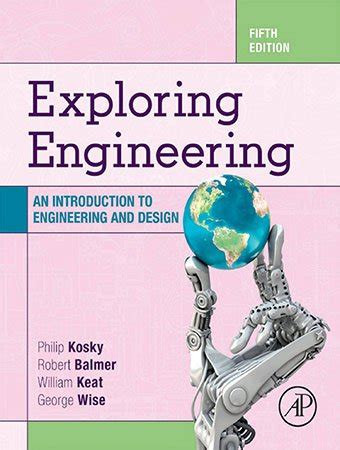Are you interested in the field of industrial engineering and its impact on modern society? In this blog post, we will delve into the world of industrial engineering, exploring its evolution from the past to the future, its key principles and concepts, and its role in enhancing efficiency, productivity, quality, and safety in various industries. Industrial engineering is a dynamic and rapidly evolving field that applies systems thinking and data analytics to optimize processes and drive innovation. We will also discuss the challenges and opportunities in this exciting field, as well as its relationship with innovation. Whether you are a student considering a career in industrial engineering or a professional looking to learn more about the field, this blog post will provide valuable insights and perspectives. Join us as we uncover the potential of industrial engineering in designing the future.
Table of Contents
Understanding Industrial Engineering: A Brief Introduction
Industrial engineering is a field of study and practice that focuses on finding ways to optimize complex processes or systems. It involves the application of math, science, and engineering principles to improve efficiency and productivity in various industries.
One of the main goals of industrial engineering is to minimize waste of time, money, materials, energy, and other resources while maximizing output. This involves analyzing and improving systems, processes, and workflows to make them more effective and efficient.
Industrial engineers work in a wide range of industries, such as manufacturing, healthcare, logistics, and technology, and they play a crucial role in ensuring that organizations operate as smoothly and effectively as possible.
By understanding the fundamental principles of industrial engineering, individuals can gain insight into the ways in which various processes and systems can be optimized to achieve optimal results. This brief introduction serves as a starting point for those interested in learning more about this dynamic and impactful field.
The Evolution of Industrial Engineering: From the Past to the Future
Industrial engineering has a rich history that dates back to the early 19th century, with the rise of the Industrial Revolution. During this time, the focus was on improving manufacturing processes and increasing efficiency in production. As industries continued to grow and expand, the need for more systematic approaches to production and management became apparent. This led to the development of industrial engineering as a distinct field of study and practice.
Over the years, industrial engineering has evolved to encompass a wide range of disciplines and methodologies. In the early 20th century, the focus shifted towards the integration of human factors and ergonomics into the design and operation of systems. This marked a significant shift towards a more holistic approach to industrial engineering, recognizing the importance of considering the capabilities and limitations of the human workforce in the design of processes and systems.
Today, the field of industrial engineering continues to evolve in response to the changing needs and challenges of modern industry. With advancements in technology, the focus has shifted towards the application of data analytics and systems thinking to optimize processes and improve productivity. The role of industrial engineers has expanded to encompass a wide range of industries, including healthcare, transportation, and service sectors, reflecting the growing importance of their expertise in a rapidly changing global economy.
Looking to the future, the evolution of industrial engineering is likely to be shaped by emerging trends such as automation, sustainability, and the integration of digital technologies. As industries continue to adapt to an increasingly complex and interconnected global marketplace, the role of industrial engineers in driving innovation and efficiency will become more crucial than ever.
Analyzing the Role of Industrial Engineering in Modern Society
Industrial engineering plays a crucial role in modern society, as it focuses on optimizing complex processes, systems, and organizations. By utilizing data analytics and systems thinking, industrial engineers are able to identify inefficiencies and develop solutions to improve overall productivity and performance.
One of the key roles of industrial engineering in modern society is to enhance the quality and safety of industrial processes. With the advancement of technology and the increasing complexity of production systems, industrial engineers are tasked with designing and implementing processes that prioritize quality and safety standards.
Furthermore, industrial engineering also plays a vital role in enhancing efficiency and productivity in various industries. Through the application of industrial engineering principles and concepts, organizations are able to streamline their operations and minimize waste, ultimately leading to cost savings and improved performance.
Overall, industrial engineering is essential in modern society as it enables organizations to adapt to the ever-changing market demands and technological advancements. By analyzing the role of industrial engineering in modern society, we can better understand its significance in driving innovation, optimizing processes, and improving overall societal well-being.
Key Principles and Concepts in Industrial Engineering
Industrial engineering is a field that focuses on finding the most efficient way to use resources such as people, machines, materials, and energy to create a product or provide a service. It involves analyzing and designing complex systems and processes to improve productivity, eliminate waste, and ensure quality. Efficiency is one of the key principles in industrial engineering, as it aims to minimize waste and maximize output.
Another important concept in industrial engineering is optimization, which involves finding the best possible solution to a problem within given constraints. This can include maximizing production output, minimizing production costs, or improving the overall performance of a system.
Systems thinking is also a fundamental principle in industrial engineering, as it focuses on understanding the interrelationships and interactions between different components of a system. This holistic approach enables industrial engineers to identify areas for improvement and implement changes that will have a positive impact on the entire system.
Furthermore, quality management is a core concept in industrial engineering, as it involves developing and implementing processes and systems to ensure that products and services meet or exceed customer expectations. This includes monitoring and controlling processes to detect and prevent defects, as well as continuously improving the quality of products and services.
Applying Systems Thinking to Industrial Engineering
Systems thinking is a holistic approach to problem-solving that considers the interconnections and interdependencies of various components within a system. When applied to industrial engineering, systems thinking allows professionals to analyze and optimize complex processes and operations. By viewing an organization as a system of interconnected parts, industrial engineers can identify potential areas for improvement and devise innovative solutions that take into account the broader impact on the entire system.
One key aspect of applying systems thinking to industrial engineering is the emphasis on feedback loops and the cascading effects of changes within the system. By understanding how changes in one area of the organization can affect other interconnected components, industrial engineers can make informed decisions that lead to more efficient and effective outcomes. This approach can help identify potential unintended consequences and proactively address them before they become larger issues.
Furthermore, systems thinking in industrial engineering promotes a shift from linear, cause-and-effect thinking to a more dynamic and interconnected perspective. This means considering the impact of various factors, such as environmental influences, organizational culture, and stakeholder involvement, on the overall performance of the system. By taking a broad view of the interconnectedness of these factors, industrial engineers can develop more comprehensive and sustainable solutions.
In conclusion, applying systems thinking to industrial engineering is essential for tackling the complexity and interconnectedness of modern organizations and processes. By adopting a holistic and dynamic perspective, industrial engineers can optimize operations, improve efficiency, and drive innovation within the field. This approach is key to addressing the challenges of modern industry and achieving sustainable success in a rapidly changing environment.
Utilizing Data Analytics in Industrial Engineering Projects
Utilizing data analytics in industrial engineering projects can lead to significant improvements in efficiency, productivity, and decision-making. By harnessing the power of big data, industrial engineers can uncover valuable insights and trends that can drive informed, data-driven decisions. Whether it’s optimizing production processes, identifying areas for cost savings, or predicting maintenance needs, data analytics plays a crucial role in enhancing the effectiveness of industrial engineering projects.
One key aspect of utilizing data analytics in industrial engineering projects is the ability to gather and analyze large volumes of data from various sources. This may include data from sensors, machinery, production lines, supply chains, and more. By aggregating and processing this data, industrial engineers can gain a comprehensive view of operations and identify opportunities for improvement.
In addition to optimizing existing processes, data analytics can also help industrial engineers identify potential risks and bottlenecks in operations. By leveraging advanced analytics techniques such as machine learning and predictive modeling, engineers can proactively address issues before they escalate, ultimately leading to cost savings and improved performance.
Ultimately, the use of data analytics in industrial engineering projects enables a more proactive and strategic approach to decision-making. By leveraging data to drive insights and recommendations, industrial engineers can make more informed, impactful decisions that drive continuous improvement and innovation.
Optimizing Efficiency and Productivity through Industrial Engineering
Industrial engineering is a branch of engineering that focuses on optimizing efficiency and productivity in various processes. This field applies mathematical and scientific principles to improve the overall performance of systems, processes, and organizations. By analyzing and optimizing complex systems, industrial engineers can help businesses streamline their operations and achieve higher levels of productivity and efficiency.
One of the key principles in industrial engineering is process optimization, which involves identifying inefficient processes and finding ways to improve them. Industrial engineers use various techniques such as time and motion studies, simulation, and statistical analysis to identify bottlenecks and inefficiencies in a process. By optimizing these processes, businesses can reduce waste, improve quality, and increase productivity.
Lean manufacturing is another important concept in industrial engineering, which focuses on eliminating waste and improving efficiency in production processes. Industrial engineers use tools such as value stream mapping, 5S, and Kaizen to identify and eliminate waste in manufacturing processes, ultimately leading to improved productivity and reduced production costs.
Furthermore, industrial engineers also rely on ergonomics principles to optimize efficiency and productivity. By designing workspaces and processes that consider the capabilities and limitations of human workers, industrial engineers can improve worker productivity, reduce the risk of injury, and enhance overall process efficiency.
Enhancing Quality and Safety in Industrial Engineering Processes
Industrial engineering is a diverse and complex field that is dedicated to optimizing processes and systems to improve efficiency and productivity. One of the key aspects of industrial engineering is the focus on quality and safety in the design and implementation of processes. In today’s fast-paced and competitive industrial landscape, it is crucial for organizations to prioritize the enhancement of quality and safety in their engineering processes to ensure the well-being of their employees and the satisfaction of their customers.
Enhancing quality in industrial engineering processes involves a comprehensive approach that encompasses various aspects of design, production, and management. It requires the utilization of quality management systems and standards to ensure that products and services meet the specified requirements and exceed customer expectations. Safety, on the other hand, involves the implementation of occupational health and safety measures to create a secure working environment for employees while minimizing the risk of accidents and injuries.
Furthermore, the integration of quality control and quality assurance mechanisms in industrial engineering processes is essential to monitor and evaluate the performance of systems and products. Quality control focuses on identifying defects and deviations from the desired standards, while quality assurance involves the proactive implementation of preventive measures to ensure consistent quality and reliability.
In conclusion, enhancing quality and safety in industrial engineering processes is a critical endeavor that requires a multi-faceted approach. By prioritizing quality management, safety measures, and quality control and assurance, organizations can strive to achieve excellence in their operations while maintaining the well-being of their workforce and the satisfaction of their customers.
Exploring the Relationship between Industrial Engineering and Innovation
In today’s rapidly evolving and competitive market, the relationship between industrial engineering and innovation is more crucial than ever. Industrial engineering plays a vital role in driving innovation by implementing new processes, technologies, and systems to improve efficiency and productivity. By constantly seeking ways to optimize operations and enhance quality, industrial engineers are at the forefront of driving innovation in various industries.
One of the key ways in which industrial engineering intersects with innovation is through the integration of advanced technologies such as data analytics and automation. With the advent of Industry 4.0, industrial engineers are leveraging cutting-edge technologies to revolutionize traditional manufacturing and production processes, resulting in increased efficiency, reduced costs, and accelerated innovation.
Furthermore, the principles of industrial engineering, such as systems thinking and continuous improvement, are inherently linked to fostering a culture of innovation within organizations. By adopting a holistic approach to problem-solving and embracing a mindset of ongoing optimization, industrial engineers can drive forward-thinking innovation initiatives that enable companies to stay ahead of the curve in today’s dynamic business landscape.
Ultimately, the relationship between industrial engineering and innovation is symbiotic, as innovation fuels the evolution of industrial engineering practices, while industrial engineering serves as a catalyst for fostering innovation across various sectors. As we continue to embrace the era of digital transformation and disruptive technologies, the role of industrial engineering in driving innovation will only become increasingly pivotal in shaping the future of industry.
Challenges and Opportunities in the Field of Industrial Engineering
Industrial engineering is a field that presents numerous challenges and opportunities for professionals. One of the major challenges in industrial engineering is the need to constantly adapt to new technologies and innovation. As the industry evolves, engineers must stay updated with the latest advancements in automation, data analytics, and artificial intelligence to remain competitive in the field. This presents an opportunity for industrial engineers to expand their skill sets and specialize in emerging technologies.
Another challenge in industrial engineering is the increasing global competition. With the rise of globalization, industrial engineers face the pressure to optimize efficiency and reduce costs in order to stay ahead of the competition. This challenge also brings opportunities for professionals to find creative solutions to streamline processes and improve productivity.
One of the key challenges in the field of industrial engineering is the need to address sustainability and environmental concerns. As the world becomes more conscious of the impact of industrial processes on the environment, industrial engineers are tasked with developing sustainable solutions that minimize waste and reduce carbon footprint. This challenge provides an opportunity for industrial engineers to innovate and develop eco-friendly practices.
Furthermore, the rapid pace of technological advancement poses a challenge for industrial engineers to continuously upgrade their skills and adapt to new methodologies. However, this challenge also presents an opportunity for professionals to take on leadership roles in driving technological innovation within the industry.





